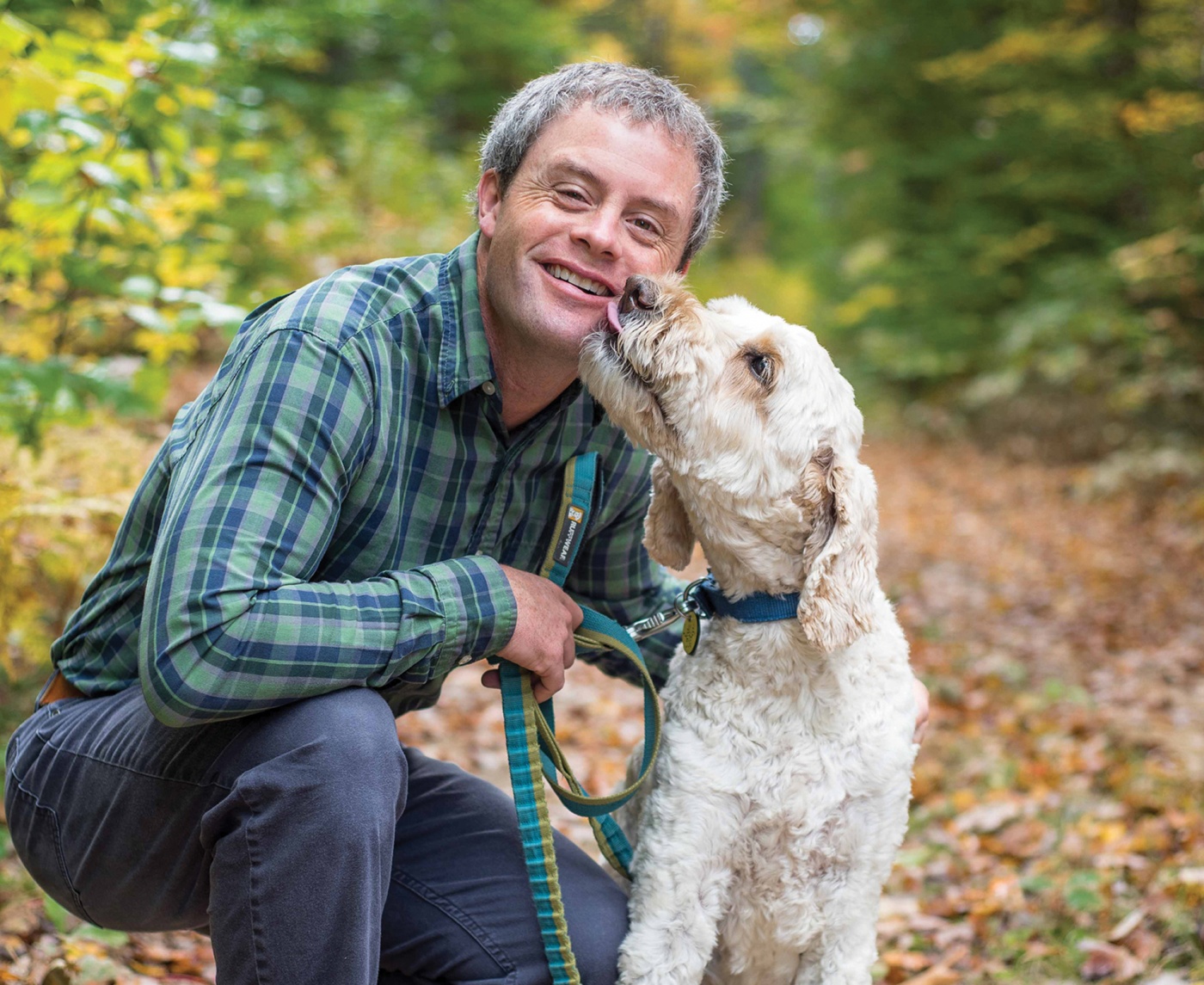Nichol Ernst ’02.5 loves the outdoors. As a kid growing up in Cape Elizabeth, Maine, he built his own bows, brain-tanned deer hides to make buckskin clothing, and could more or less survive with only a knife. So college was a rough transition.
“I used to sneak over to the John Brown House lawn to do fire by friction to keep up the calluses on my hands,” Ernst recalls. But by the start of junior year, sitting in a darkened basement room in a class analyzing cartoon characters, he felt lost. He promptly headed for a secret lake in Maine, where he lived for months off grains and whatever he could hunt. When the lake froze, he returned to Brown rejuvenated and focused.
After graduating with a degree in U.S. history, he took a job with Summit Achievement, a wilderness therapy program for troubled youth. “Having had a really transformative experience of my own in the wilderness, I was realizing that maybe there were ways to help other people have that,” he says. He’s now co-owner, therapist, and executive director at Summit, running a program that combines backpacking trips with academics and cognitive-based therapy at cozy cabins, all meant to assist adolescents struggling with anxiety, depression, and school refusal. “The wilderness is a tool to help people step out of their comfort zone and learn who they really are,” Ernst says. “You can’t pretend to be someone you’re not two days into a camping trip when you’re soaking wet. Frankly, doing therapy in the wilderness is easy because it is such a powerful experience.”






